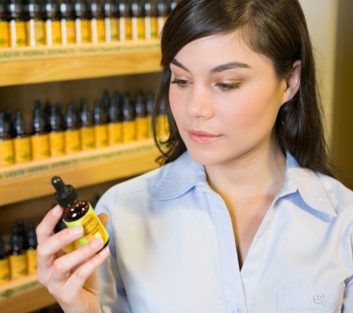
What a naturopath can do for you
Naturopaths are great at diagnosing problems in our diets and confronting important realities about how stressed, sleep-deprived or exercise-starved we may be. According to Greg Chernish, a family physician in Winnipeg trained in Chinese medicine and acupuncture, naturopaths should be seen as lifestyle coaches.
While alternative providers can be helpful, they may also prescribe expensive treatments or supplements that harm more than help.
Here’s how to sort the good from the bad when it comes to naturopathic care.

DO ensure your naturopath is licensed
To be accredited by the Canadian Association of Naturopathic Doctors (CAND), naturopaths must complete a four-year program and pass standardized exams as well as intern in the clinical setting. In many provinces, including British Columbia, Manitoba, Alberta, Saskatchewan, Nova Scotia and Ontario, it’s illegal for a someone who isn’t licensed by CAND to call themself a naturopath. However, in Quebec, the north and some maritime provinces, anyone can call themselves a naturopath, whether they’ve received the proper training or not. Patients can find out if their naturopathic doctor is qualified by contacting the CAND.

DON’T trust supplements simply because they’re natural
Naturopaths can prescribe herbs, vitamins or mineral supplements to their clients, and in some provinces, they’re allowed to prescribe certain pharmaceuticals such as hormones and amino acids. But just because a substance is classified as ‘natural’ doesn’t mean it’s safe. Herbal medicines don’t face the same scrutiny as pharmaceuticals and can be sourced from factories in countries that have poor regulation. In some cases, they can contain chemical additives or don’t contain the amount of the herb or supplement as listed on the label. “There may be issues with identification of a substance or contamination with heavy metals or chemicals,” says Dr. Chernish.
Supplements made in a Good Manufacturing Practices (GMP) facility means the company has had to meet various standards and is independently investigated. You’ll also want to find out if the supplement has a Certificate Of Analysis, which means the ingredient has been tested by a lab and is free of contaminants. Check out the website of a company, or contact them, to get this information.

DO share major lifestyle changes and supplements with your physician
Certain herbal medications can interact with pharmaceutical drugs, including birth control, so it’s important that you tell your family physician if you’re taking any new supplements. Additionally, it’s always good to get a second opinion about a new diet regime. And physicians always like to learn new information about holistic remedies that work for their patients.

DO write down medical history and issues you’ve been facing before your first appointment
The great thing about naturopaths is that they take time with you. A first appointment can last an hour as a naturopath asks questions about your physical, and maybe even emotional, wellbeing. You can help focus the conversation by thinking about why you want to go to a naturopath in the first place. Think about what is the biggest complaint about your health, as well as symptoms that have bothered you over the past year. Be ready to answer questions about your medical history as well as lifestyle questions how much sleep you get each night, what you typically eat in a day and how much caffeine and alcohol you consume. You’ll want to be as accurate as possible so the naturopath can pinpoint solutions.

DON’T let a naturopath diagnose your condition without proper testing
Some naturopaths diagnose conditions using tests that aren’t recognized by the medical community. According to Dr. Chernish, the common diagnoses some naturopaths make without enough information include: certain allergies, lyme disease, and a condition called ‘adrenal fatigue,’ which is not currently recognized by most medical doctors. Be wary especially of diagnoses where the treatment is costly or requires long term supplement and medication use. At any rate, if a naturopath makes a diagnosis your physician hasn’t mentioned or disagrees with, it’s worth talking to both providers about why each has a different opinion.

DO discuss nutrition
Naturopaths are often better trained in nutrition and digestive issues that are caused by diet than doctors are, says Dr. Chernish. So take advantage of this wealth of knowledge and work with your naturopath on how you can eat more healthily. In fact, naturopaths often ask their clients to keep a food diary, so you can get a head start by recording what you eat the week before your first appointment.
Be prepared to think holistically about nutrition – naturopaths can often help pinpoint eating and lifestyle patterns that can lead to sluggishness or stress. “If you’re going to a naturopath, I think the thing you’re going for is basically a health coach, someone who can counsel you on healthy eating and healthy exercise and stress management,” says Dr. Chernish.
Related:
• “I beat stress with naturopathy.”
• What a naturopath can and can’t do for you
• My healthy life: Joy McCarthy
